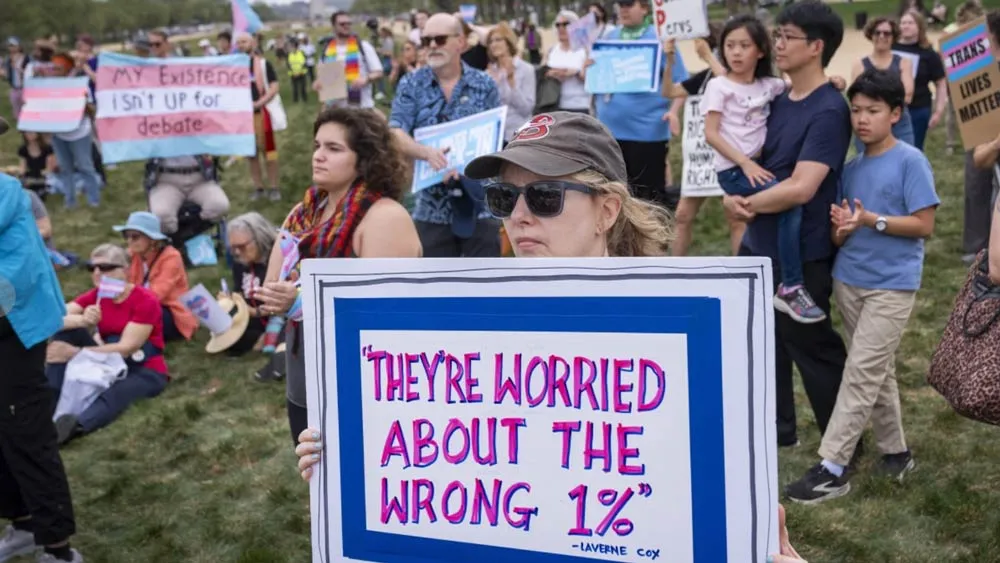March 20, 2021
Judges Claim 'Clarity Suffers' in Denying Non-Binary Defendant Pronoun Plea
Kevin Schattenkirk READ TIME: 2 MIN.
On Tuesday, a panel of federal judges rejected a nonbinary defendant's appeal to the court to be referred to with they/them pronouns, Them reports.
In 2019, Shawn Kelly Thomason pled guilty to stalking charges in Minnesota. In Thomason's appeal of their 45-year sentence, their attorneys said prosecutors regularly and intentionally misgendered the defendant after a request that Thomason be referred to with they/them pronouns. Court documents show that Thomason objected to "all 134 instances of purposeful and deliberate misgendering" during a November 2019 hearing.
The three-judge panel on the U.S. Court of Appeals for the 9th Circuit unanimously rejected the request, with Judge Steven M. Colloton writing, "Clarity suffers and confusion may follow when legal writing refers to a single individual as 'they,' especially when the materials advert to other actors who are naturally described as 'they' or 'them' in the traditional plural." The judge added that after "8 months of habit using male pronouns," it would be difficult for the court to switch to they/them.
The court placed the blame on Thomason for the misgendering, with Colloton saying Thomason's signed plea agreement referred to the defendant with masculine pronouns, acknowledged that masculine pronouns would be used in the sentencing letter "for the sake of clarity," and that there was no objection to the prosecutor's use of masculine pronouns at the time of sentencing. Thus, the court says, Thomason "waived any claim of misconduct by opposing counsel."
As Thompson explained, "Multiple dictionaries, including Merriam-Webster and the Oxford Dictionary, cite the use of singular "they" as appropriate and grammatically correct. The American Psychological Association has also approved the use of they/them pronouns in scholarly writing." Furthermore, the style guide of the Trans Journalist Association states, "they/them pronouns are only confusing when stories are written poorly."
The American Bar Association Journal concurs and offers tips on clearly and appropriately identifying people in court. At the same time, the UCLA Law Review has characterized intentional misgendering as a form of misconduct and harassment.
Joe Patrice, senior editor of Above the Law responded to the Thomason case in a blog post, "Wordsmithing is as much an art as a science, and if Judge Colloton and the Eighth Circuit can't hack it, maybe someone can set up some remedial writing exercises."
Other examples point both to the progress and the regression in the courts on dealing with gender identity. Patrice mentions Justice Neil Gorsuch, one of the more conservative justices on the Supreme Court of the United States, and how Gorsuch appropriately identified Aimee Stephens in the court's 6-3 ruling in Bostock v. Clayton County in June 2020.
U.S. District Judge Robert N. Chatigny, in Connecticut, insisted that two Black transgender athletes be accurately gendered after complainants purposefully misgendered both as "male athletes." The Alliance Defending Freedom, an anti-LGBTQ hate group, claimed Chatigny was "biased" in not allowing the group to intentionally misgender trans people in court.
On the other side of the coin, Judge Stuart Kyle Duncan of the U.S. Court of Appeals of the 5th Circuit – a Trump appointee – threw out a request by a transgender defendant to change her name and gender markers on her case file to accurately reflect her gender identity.
Kevin Schattenkirk is an ethnomusicologist and pop music aficionado.


